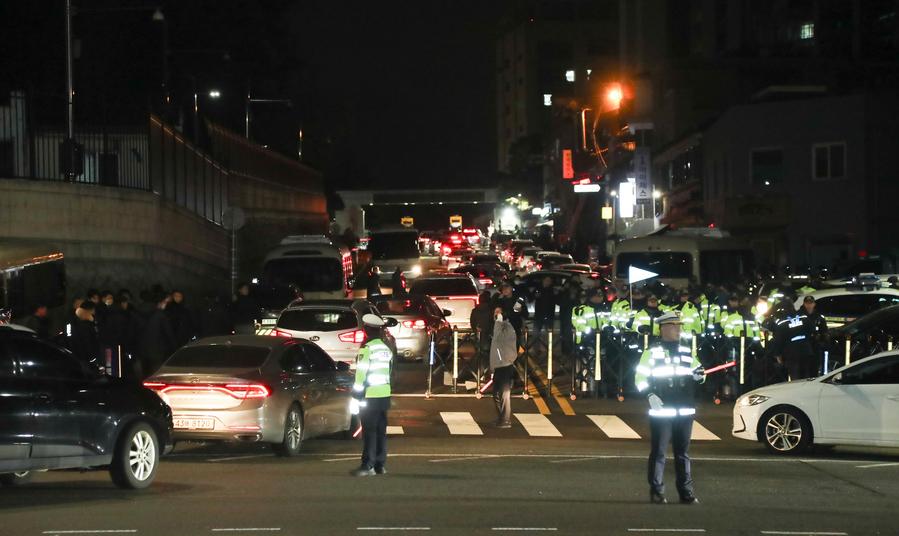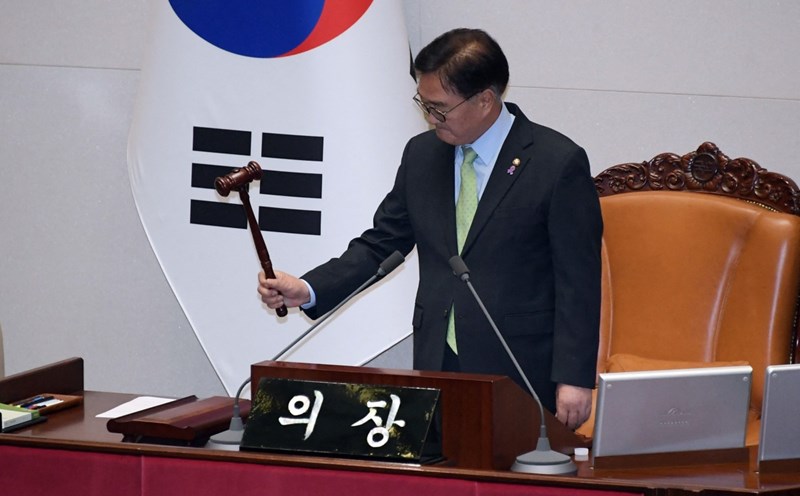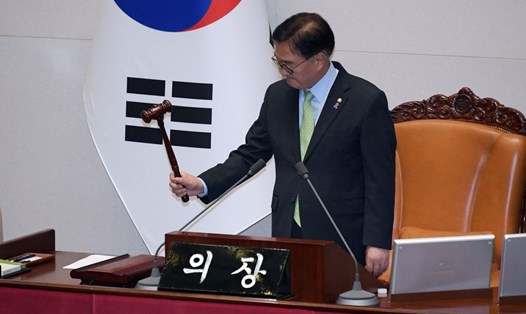South Korean experts say President Yoon Suk Yeol's tenure is in great turmoil following the national crisis caused by his brief martial law declaration.
CNN quoted Ellen Kim, a senior fellow at the Center for Strategic and International Studies in Korea, saying that Mr. Yoon's sudden declaration of martial law on the night of December 3 in an effort to resolve the political deadlock with the opposition "really shocked many Koreans."
Yoon's move — declaring the first martial law since South Korea's transition to democracy in the late 1980s — has brought back painful memories of the country's previous military dictatorship, Kim told CNN.
South Korea has been in political deadlock for months, with the country's opposition parties winning a majority in the National Assembly in April. Tensions escalated last week when the opposition moved to cut the government budget and begin impeachment proceedings against key officials.
“President Yoon strongly condemns this as a legislative dictatorship and sees it as a threat to his government,” said Ms. Kim.
Although President Yoon Suk Yeol is a strong advocate of freedom and democracy, his declaration of martial law makes it “difficult to understand what he is trying to achieve” amid an already tense political climate, Ms. Kim pointed out.
Even conservative allies criticized Mr. Yoon's decision, said Park Sung-min, an analyst at Min Consulting in Seoul.
The sudden declaration and lifting of martial law has created uncertainty for South Korea's economic outlook.

The country is home to some of the world's biggest companies - including tech giants Samsung, SK Hynix and LG - and carmakers such as Hyundai.
Samsung’s London-listed shares fell 7% on Dec. 3 at the height of the turmoil. But they fared much better in Seoul on Dec. 4, down 1.1%.
Economists are also concerned about possible knock-on effects on South Korea's credit rating.
“We are concerned that these events could impact Korea’s credit rating, although that remains uncertain at this stage,” said Min Joo Kang, senior economist at ING.
Professor Mason Richey at Hankuk University of Foreign Studies in Seoul said that for a president who values South Korea's international reputation like Yoon Suk Yeol, the recent incident "makes South Korea look very unstable" and could have a negative impact on South Korea's financial markets, currency and diplomatic standing.
Yonhap reported that in the National Assembly session on the afternoon of December 4, the opposition consisting of 6 parties, including the main opposition Democratic Party, submitted a bill to impeach the president. The bill received the support of all 191 opposition lawmakers. No lawmakers from the ruling People's Power Party participated.
The Democratic Party plans to report the impeachment bill to the plenary session of the National Assembly on the morning of December 5. According to regulations, after 24 hours from the report, the National Assembly must convene a session to pass the impeachment bill within 72 hours.
To pass a presidential impeachment bill, the approval of at least two-thirds of the National Assembly is required. The 300-seat National Assembly is controlled by the Democratic Party, which and other smaller parties have 192 seats, eight short of the 200-seat minimum needed. Thus, impeachment can only proceed if at least eight lawmakers from the ruling party support it.









